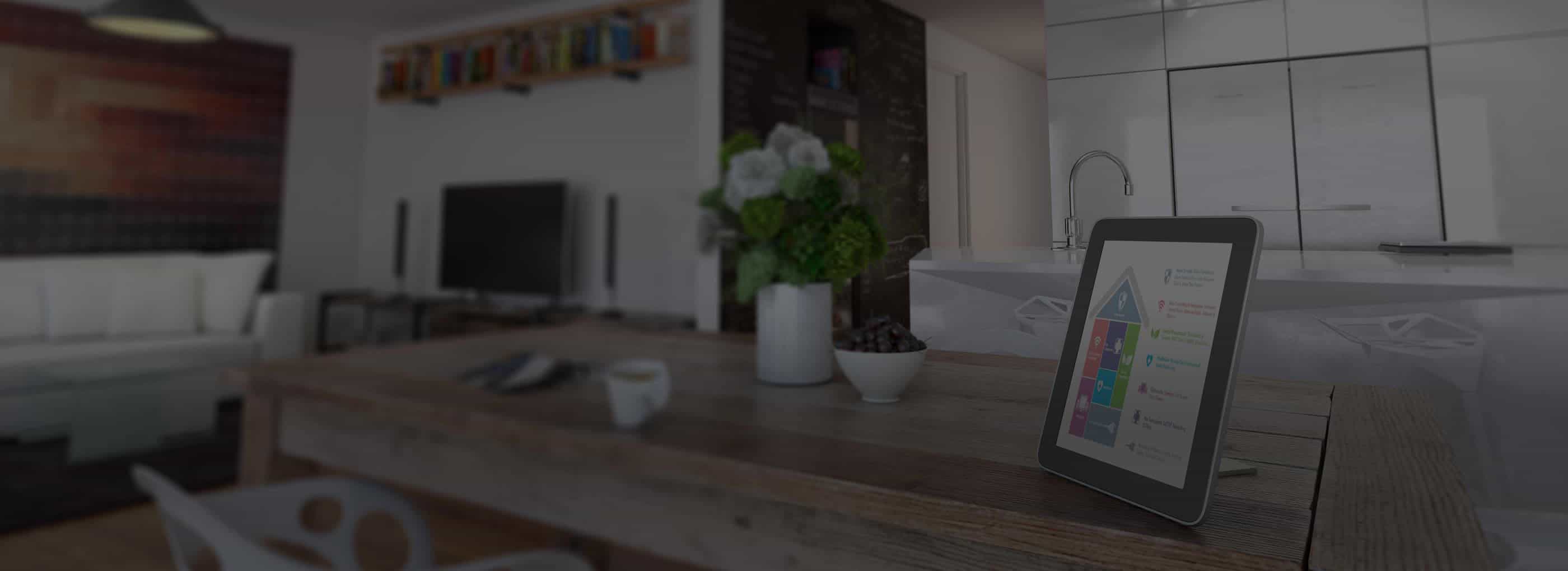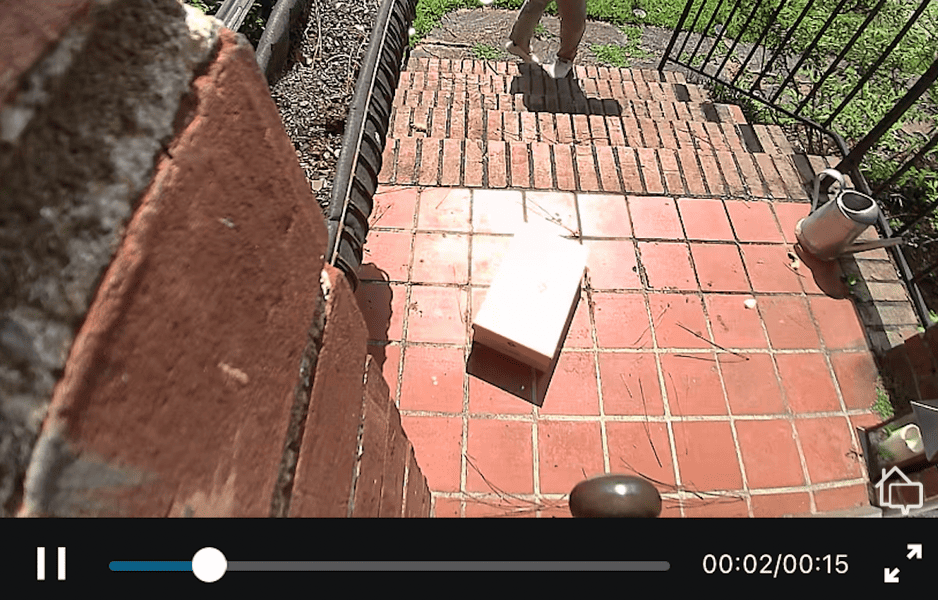Editor’s Note: Looking for a good deal on a home security system? We highly recommend a trusted brand like SimpliSafe or ADT. See all of our picks in our best home security systems list.

The best home security cameras have a great track record when it comes to keeping prowlers off our property. That’s because cameras are proven deterrents.1 You put your camera in the right place, a thief sees it, and he moves on to the next address on the block, which hopefully has a first-rate home security system of its own. That’s the idea behind displaying cameras, at any rate, and the main reason we have them.
But there’s a flipside to visible home security cameras: the murkier world of hidden cameras, usually set up to observe and record action inside our homes. While hidden cameras are legal in most states, there are other psychological and social aspects of recording clandestine video that bear a closer look. The big question here isn’t so much “Is it OK?” as “Do I have to tell people?”
In this home security guide, we’re going to cover the ins and outs of hidden camera consent, answering questions like:
- Do I have to notify visitors about hidden cameras in my house?
- Should I tell caregivers and nannies I’m spying on them?
- Can I put cameras in bedrooms and other private spaces?
- Are there any good alternatives to hidden cameras?
Did You Know? It’s true that security cameras deter the majority of burglars. But there are always a select few who manage to get caught doing fabulously dumb things.
Do I have to notify visitors about hidden cameras in my house?
The law treads pretty lightly on homeowners’ rights to record people in their homes. That’s understandable. As long as we’re not doing anything illegal, we can pretty much do as we please on our property, including monitoring it.
There are some very notable, common-sense exceptions to that rule that we’ll discuss in more detail below, but for the sake of argument, let’s say that installing a hidden camera isn’t going to land you in any trouble with the law. The question now is: Do we have to tell guests about it?
The answer to that question is by and large no. The vast majority of states don’t require you to share this information, though there are four that do: Arkansas, Delaware, Indiana, and Michigan. If you’ve got a nanny cam and you live in one of those four states, the law requires that you notify visitors when the camera’s running. If you don’t, you could find yourself explaining your story to a judge.
That’s what the law has to say about hidden camera consent. But it isn’t the end of the conversation, because when it’s a question of recording people without their knowledge, you also have to consider how your hidden cameras will influence your relationships, professional and personal.
FYI: Recording video with security cameras may be legal in most places, but recording audio isn’t. In all 50 states, if you want to record other people talking, you’ve got to be there in person, while in 12 states (see FAQs below), you need the consent of everyone present.2
Should I tell caregivers and nannies I’m spying on them?
Imagine you’ve been hanging out with a couple for a few years. One Saturday after dinner at their place, your friends let you in on a little secret. They’ve been filming you secretly the whole time. They don’t watch the footage; they say it’s just for security purposes.
How would you feel about their revelation? I’m guessing as icky as if your friends had just told you they regularly tailed you to and from work in their car or turned binoculars on your living room window while you were watching TV.
Speaking as a home security expert, let me say that hidden cameras aren’t the best option if you have a reason to record interior spaces. Read on for a few better solutions. But if hidden cameras are a must, guests have a right to know about them.
Again, it’s not a question of the law. It’s a question, as New York Times writer Thorin Klosowski points out, of not being creepy.3 This also applies to people working in your home.
Most caregivers, like most people, don’t want to be filmed surreptitiously. They’ll see it as a betrayal of trust. More to the point, telling them about your camera is a win-win. Slackers or abusive nannies won’t stick around if they know they’re on camera. For the good apples, nothing will change.
Pro Tip: There are a few states where hidden cameras are completely forbidden by law: Georgia, Hawaii, and Utah.
Can I Put Cameras in Bedrooms and Other Private Spaces?
A few paragraphs ago, I told you that the law is pretty loose when it comes to hidden cameras. You can use them in most states, and in all but a few, you don’t even have to tell guests they’re there, even if you probably should.
There’s one major exception to this rule: situations where there’s a “reasonable expectation of privacy.” That’s actually the term used in court. It means that you can’t put a hidden camera anywhere in your house where privacy is expected, typically bathrooms, showers, changing rooms, and bedrooms.
Personally, I doubt this test would apply to a thug whom you happened to film via your plant cam powdering his nose in between looting your office and your bedroom, but it’s the law of the land for anyone else in the house. It doesn’t matter if it’s a family member, relative, or guest.
FYI: Installing cameras as a renter is not a black and white situation. If you rent, check your lease and state laws to see what’s okay and what’s not.
Are There Any Good Alternatives to Hidden Cameras?
If you’ve got strong personal reasons for installing a hidden camera, that’s your business. Just make sure hidden cameras are legal where you live — not just in your state, but in your town. Municipalities can have their own codes.
If you’re on the fence, however, I’d stick with a trusted name in home security. Most of these brands don’t make hidden cameras, but they’ve got plenty of wireless mini camera options that work even better.
A smaller camera I like is the Blink Mini. It’s tiny, cute, totally portable, and only $35 a pop. Check out this hands-on Blink Mini review, where you can see the Blink in action.
A second, pricier, option with pretty much the same specs is SimpliSafe’s SimpliCam. The advantage of the SimpliCam ($99) is that you can opt in to a professional monitoring plan if you want. Security systems with professional monitoring services offer you maximum security by connecting you to first responders in the event of an emergency.
A final option is the Lorex 2K Indoor Security Camera. Like the Blink Mini, this is really cute. But don’t be fooled, though. Lorex cameras are heavy lifters with top-of-the-line specs. At $49.99, the price tag isn’t bad either. Curious? Here’s a guide to Lorex’s features and pricing.
FYI: New to home security cameras? A hidden camera might not be the right first step. Read through our complete 2025 home security buyer’s guide for a walk-through of the features to look for, the price tags on the best brands, and some tips on finding the right cameras for your home.
The Takeaway
We all have our own reasons for installing home security cameras. Most of the time, we’re just looking for extra security around the house. But you may really feel that a hidden camera is the way to go. Unless you live in a state where hidden cameras are illegal, there’s nothing stopping you.
Just remember, there’s a fine line between monitoring and voyeurism. Hidden cameras can and do land their owners in trouble when they cross that line, even accidentally. More importantly, clandestine recording can create some really uncomfortable social and professional situations with guests and caregivers.
That’s why, if it were me, I’d think hard about investing in less invasive home security. Portable, cheap (non-hidden) wireless cameras with the latest specs are easy to find. I’ve pointed you to a few. But the main advantage with these pint-sized cameras is that they’re out in the open so you’ll never be stuck explaining yourselves to speechless guests who never in a million years suspected you were secretly filming them in your house.
FYI: SafeHome is now livestreaming! Got questions about home security? Email us at info@safehome.org, and we’ll answer your questions live on our next stream—personalized advice, straight from the experts. Find us on YouTube @safehome_org. Don’t miss out!
FAQs
In most states, yes. Georgia, Hawaii, and Utah are the exceptions. Pretty much everywhere, except in private places like bedrooms, changing rooms, bathrooms, and showers. No — not unless you happen to live in Arkansas, Delaware, Indiana, and Michigan. In all other states, you’re not required by law to divulge the whereabouts of your spy cams. However, if you’ve got hidden cameras and your guests find out, you’ll have a lot of awkward explaining to do. Yes, we think so. It’s better not to record professional caregivers without their knowledge. If you want to record audio, you need to be present. In these 10 states, you also need participants’ consent: California, Connecticut, Florida, Illinois, Maryland, Massachusetts, Montana, New Hampshire, Pennsylvania, and Washington.





